Search Images
Browse Content (p. 569)

Image
Elodie Harper
Elodie Harper, author of the historical fiction book The Wolf Den.

Image
Woman Spying on Male Lovers
Woman Spying on Male Lovers by an unknown artist, Qing Dynasty.
Chinese Sexual Culture Museum, Shanghai.

Image
Catacombs of Kom El Shoqafa
Catacombs of Kom El Shoqafa, Alexandria, Egypt, dug in the 2nd century CE.

Image
Serapeum of Alexandria
Serapeum of Alexandria, Egypt.
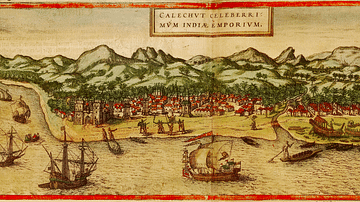
Image
The Port of Calicut in 1572
An illustration showing the port of Calicut on the southwest coast of India in 1572. Calicut was a major trade hub for the Eastern spice trade. From Georg Braun and Franz Hogenbergs atlas Civitates orbis terrarum.
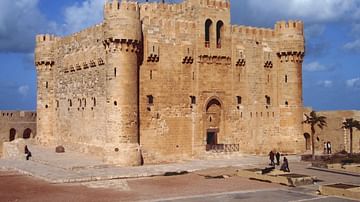
Image
Fort Qaitbey
Fort Qaitbey, Alexandria, Egypt, built by the Mamluk ruler Quait-bey (r. 1468-1496 CE) between 1477-1480 CE.
The fort stands a the site of the ancient Lighthouse of Alexandria, one of the Seven Wonders of the Ancient World.

Image
Alexandria Harbor
View of Alexandria from the sea, 2008.
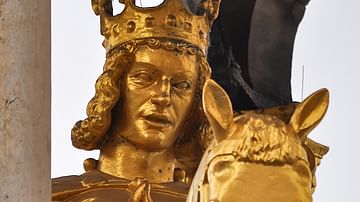
Image
Magdeburg Rider Statue of Otto the Great
This golden statue, called the Magdeburger Reiter, is believed to portray Otto I the Great (962-973), founder of the Holy Roman Empire.
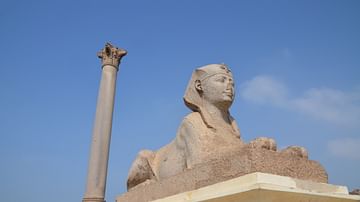
Image
Pompey's Pillar
Pompey's Pillar, constructed 298-302 CE, Alexandria, Egypt.
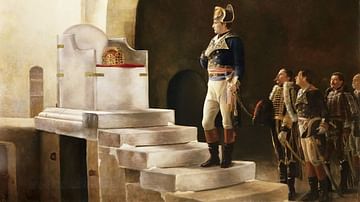
Image
Napoleon in Aachen by Henri-Paul Motte
A painting (dated 1898) of a fictionalised event in which Napoleon (1769-1821) looks upon Charlemagne's imperial crown in Aachen, Germany, to symbolise the continuity between one European conqueror and another. Current location unknown.